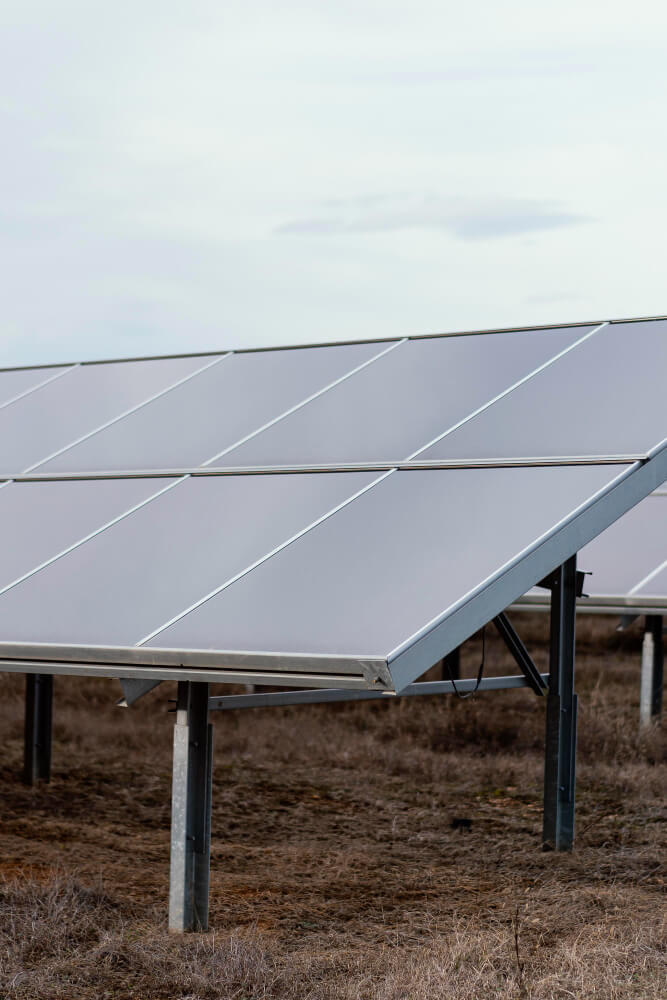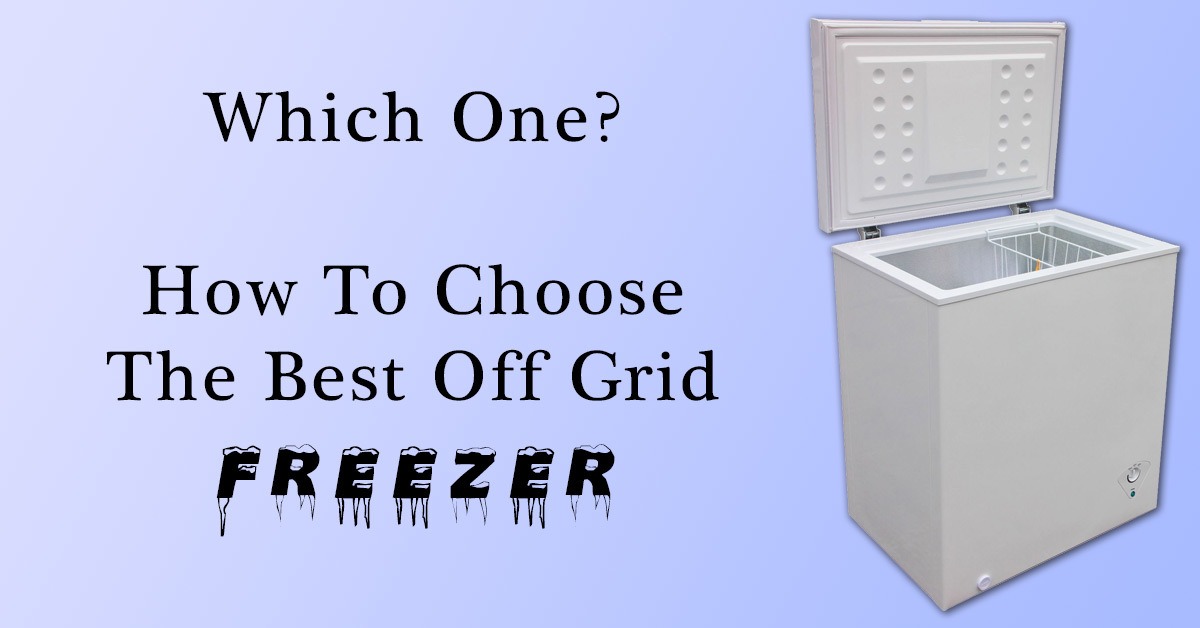Living off-grid has its challenges, and keeping food fresh without traditional electricity is a big one.
Whether you’re in a remote cabin, an RV, or a homestead powered by solar energy, a solar freezer can be a game-changer.
But with so many options available, how do you choose the right one? Let’s break it down.
Why You Need a Solar Freezer in Off-Grid Areas
For those living in off-grid locations, food preservation is crucial. Standard freezers rely on grid electricity, making them impractical in areas with limited or no power access.
Solar freezers solve this problem by using the sun’s energy to keep food frozen without the need for fuel-powered generators or expensive off-grid electric setups.
Here’s why a solar freezer is a smart investment:
- Energy Independence – You’re not reliant on the power grid, reducing utility bills and blackouts.
- Long-Term Cost Savings – After the initial investment, you’ll save money on electricity or fuel.
- Eco-Friendly – Solar energy is clean and renewable, reducing your carbon footprint.
- Reliable Food Storage – Essential for homesteaders, remote workers, campers, and those in disaster-prone areas.
- Versatile Usage – Great for farms, hunting cabins, boats, and emergency preparedness.
Common Questions About Solar Freezers
Before diving into the options, let’s tackle some of the biggest questions people have:
Do solar freezers actually work?
Yes! Solar-powered freezers are designed to be energy-efficient, working with minimal power input while maintaining freezing temperatures.
Many models are built to function even in low sunlight conditions.
How much solar power do I need?
This depends on the freezer size and your daily sun exposure.
Here’s a general guideline:
- Small (50-100L): 100-200W solar panel
- Medium (100-250L): 200-400W solar panel
- Large (250L+): 400W+ solar panel and a battery backup
Are solar freezers expensive?
They can be pricier upfront than regular freezers, but they eliminate electricity costs and reduce long-term expenses.
What happens on cloudy days?
Most solar freezers have a battery storage system or can be connected to external batteries to store excess power for nighttime and cloudy days.
Types of Solar Freezers
Not all solar freezers are created equal.
Here are the main types to consider:
Direct DC-Powered Solar Freezers
- Runs directly on DC power from solar panels
- Highly efficient with minimal energy loss
- Ideal for off-grid homes, farms, and tiny houses
Battery-Powered Solar Freezers
- Uses a battery bank to store solar energy
- Works even when the sun isn’t shining
- Great for areas with unpredictable weather
Hybrid Solar Freezers
- Can switch between solar, battery, and AC power
- More flexible, perfect for those transitioning off-grid
- Useful for people who travel often or have backup power sources
Key Features to Look For
When choosing a solar freezer, keep these features in mind:
- Energy Efficiency – Look for models with thick insulation and low energy consumption.
- Storage Capacity – Think about how much food you need to store. A family-sized freezer will require more power than a small unit for occasional use.
- Durability – If you’re living off-grid, you need a freezer that can handle temperature fluctuations and rugged conditions.
- Battery Backup – If you experience cloudy days or long winters, a built-in battery or external battery option is a must.
- Portability – If you need a freezer for camping, RVs, or tiny homes, look for lightweight and compact models.
- Low Maintenance – The best solar freezers require minimal upkeep, with easily replaceable parts and low power draw.
Top Solar Freezer Brands to Consider
- EcoSolarCool – Known for ultra-efficient solar freezers designed for off-grid living.
- Dometic – Offers portable and hybrid solar freezers great for RVs and camping.
- SunDanzer – Specializes in DC-powered freezers with low energy consumption.
- Whynter – Affordable options that can run on solar, AC, or battery power.
Personal Story: Living Off-Grid with a Solar Freezer
When my family moved to an off-grid cabin in the mountains, keeping food fresh was a struggle. We started with a gas-powered freezer, but the fuel costs added up fast.
Switching to a DC-powered solar freezer changed everything.
Now, we store meat, dairy, and frozen vegetables without worrying about fuel or grid power.
Even on cloudy days, the backup battery keeps everything frozen. It’s one of the best investments we’ve made for off-grid living!
Tips for Getting the Most Out of Your Solar Freezer
✔ Position your solar panels wisely – Make sure they get maximum sun exposure throughout the day.
✔ Pre-chill food before storing – This helps reduce the freezer’s workload.
✔ Keep the lid closed – Every time you open it, warm air gets in, making the freezer work harder.
✔ Invest in a thermometer – Monitoring the internal temperature helps avoid spoilage.
✔ Regular maintenance – Keep the vents and coils clean for optimal efficiency.
✔ Use energy-efficient habits – Store food in airtight containers, and keep the freezer at least three-quarters full to maintain cold temperatures.
✔ Consider an external battery – If you have multiple cloudy days, a deep-cycle solar battery can provide extended backup power.

FAQs: Troubleshooting Common Issues
My solar freezer isn’t cooling properly. What should I do?
Check the following:
- Ensure your solar panels are clean and positioned correctly.
- Verify that your battery is fully charged and functioning.
- Look for air leaks in the lid or seals.
Can I convert a regular freezer to solar?
Yes! You can use an inverter and solar battery setup to power a standard freezer.
However, solar-specific freezers are more efficient and designed for lower power consumption.
Is it safe to use a solar freezer indoors?
Absolutely! Solar freezers operate quietly and produce no harmful emissions, making them safe for indoor use.
Conclusion
A solar freezer is a practical and reliable solution for off-grid living. Whether you’re a homesteader, camper, or someone preparing for emergencies, the right solar freezer can reduce dependence on the grid, cut energy costs, and provide long-term food security.
If you’re looking for the best solar freezers for off-grid homes, be sure to explore options that match your power setup, storage needs, and budget.
With many options available, it’s important to choose a model that fits your power setup, storage needs, and budget.
By understanding the different types, installation process, and key features, you can make an informed decision that ensures efficient, sustainable, and cost-effective food preservation.






